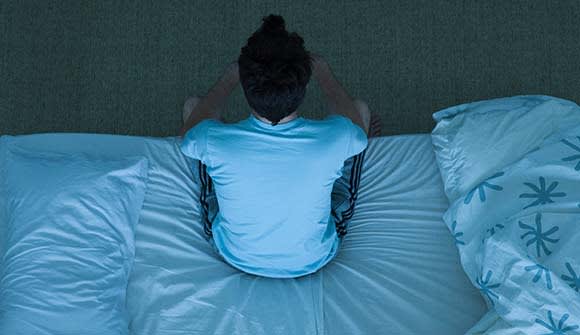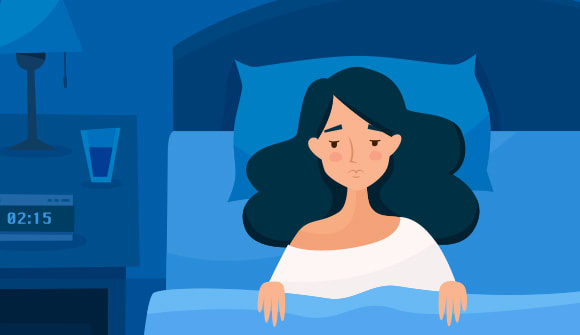Turning to melatonin
Pros and cons of the common sleep aid.
Article Author: Beverly Wong-Ken
Article Date:

Many people who are tired of unsuccessfully counting sheep are turning to over-the-counter melatonin for some much-needed sleep. Although many swear by its success, there may be better options for a long-term solution.
Jacob Wolf, MD, a board-certified family physician with Baptist Primary Care, explained exactly what melatonin is and shared pros and cons of the supplement.
PSA from the FDA
"Melatonin is a hormone naturally produced by the brain in response to darkness. Exposure to light during the night can block it," Dr. Wolf explained. "The melatonin hormone helps to regulate our circadian rhythm, otherwise known as the body's 24-hour internal clock, which lets you know when it's time to wake up and go to sleep each day."
Over the past few years, the use of melatonin as a sleep aid has drastically increased; given the body's natural production of the hormone, many are quick to try supplements. However, most are unaware that the Food and Drug Administration (FDA) doesn't regulate over-the-counter melatonin or other dietary supplements, which means it doesn't test these products for safety or effectiveness.
Snooze or lose?
"Melatonin can help decrease the length of time it takes to fall asleep and increase how long you stay asleep. It's often helpful for jet lag and for those with irregular work schedules. Additionally, as people age, their bodies produce less melatonin. So elderly people who have trouble sleeping may find some relief by taking a supplement," said Dr. Wolf. "While there are benefits of melatonin for short-term use, there are also possible side effects including headache, nausea, dizziness and drowsiness."
This over-the-counter sleep aid comes in a variety of doses, so how do you know which is right for you?
"While there is no official dose for adults, taking between 0.5 and 5 mg appears to be effective and it should always be taken one hour before bedtime," Dr. Wolf said. "Although melatonin supplements appear to be OK for daily use, it's important to remember there is little information about its safety."
How to rest best
Taking a pill might seem like an easy way to hit the hay, but there are also plenty of natural solutions to help you get a good night's rest.
"I don't recommend over-the-counter medications or supplements for my patients with insomnia," said Dr. Wolf. "There are several natural approaches to try first, one being to improve your sleep hygiene. A few other things I'd recommend would be to exercise regularly, avoid large meals and liquids before bed, limit alcohol, caffeine and cigarettes, and maintain a regular bedtime. Relaxation techniques like meditation and guided imagery can also be helpful."
All in all, before seeking a supplement, it's best to get a professional's opinion. Be sure to always consult with your primary care physician before beginning a new medication or supplement to discuss the best options for you.
If you are having trouble sleeping, talk to your primary care doctor. If you don't have one, call 904.202.4YOU or click here to request an appointment with one near you.



